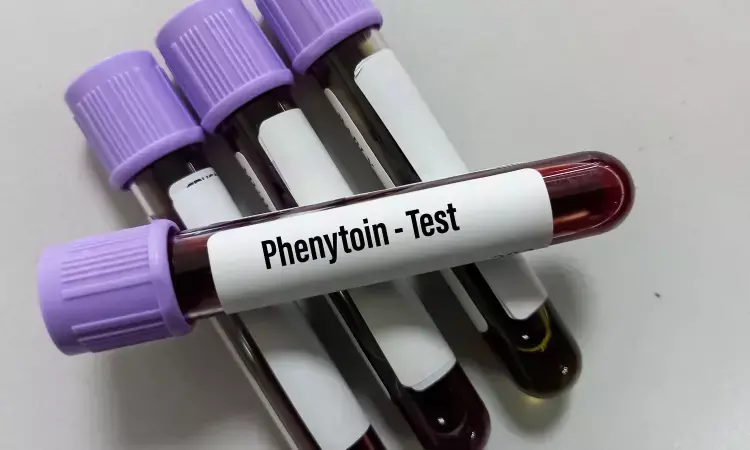- Home
- Medical news & Guidelines
- Anesthesiology
- Cardiology and CTVS
- Critical Care
- Dentistry
- Dermatology
- Diabetes and Endocrinology
- ENT
- Gastroenterology
- Medicine
- Nephrology
- Neurology
- Obstretics-Gynaecology
- Oncology
- Ophthalmology
- Orthopaedics
- Pediatrics-Neonatology
- Psychiatry
- Pulmonology
- Radiology
- Surgery
- Urology
- Laboratory Medicine
- Diet
- Nursing
- Paramedical
- Physiotherapy
- Health news
- Fact Check
- Bone Health Fact Check
- Brain Health Fact Check
- Cancer Related Fact Check
- Child Care Fact Check
- Dental and oral health fact check
- Diabetes and metabolic health fact check
- Diet and Nutrition Fact Check
- Eye and ENT Care Fact Check
- Fitness fact check
- Gut health fact check
- Heart health fact check
- Kidney health fact check
- Medical education fact check
- Men's health fact check
- Respiratory fact check
- Skin and hair care fact check
- Vaccine and Immunization fact check
- Women's health fact check
- AYUSH
- State News
- Andaman and Nicobar Islands
- Andhra Pradesh
- Arunachal Pradesh
- Assam
- Bihar
- Chandigarh
- Chattisgarh
- Dadra and Nagar Haveli
- Daman and Diu
- Delhi
- Goa
- Gujarat
- Haryana
- Himachal Pradesh
- Jammu & Kashmir
- Jharkhand
- Karnataka
- Kerala
- Ladakh
- Lakshadweep
- Madhya Pradesh
- Maharashtra
- Manipur
- Meghalaya
- Mizoram
- Nagaland
- Odisha
- Puducherry
- Punjab
- Rajasthan
- Sikkim
- Tamil Nadu
- Telangana
- Tripura
- Uttar Pradesh
- Uttrakhand
- West Bengal
- Medical Education
- Industry
Rare case of Phenytoin induced movement disorders: A report

Phenytoin, is a popular drug used as an antiseizure medication sold under the brand name Dilantin. It is useful for the prevention of tonic-clonic seizures and focal seizures. Dyskinesia categorized by involuntary movement of muscle. Antiepileptic drug-induced involuntary movements have been well researched. Rare reports have been made for dyskinesia, a type of dystonia caused by phenytoin however the mechanism of its occurrence is not well known.
A new case study in Journal Of Medical Case Reports reveals that the phenytoin-induced dyskinesia in the patient was successfully reversed with prompt identification and treatment. According to the case study’s findings, such people may benefit from periodic therapeutic drug monitoring. Differential diagnosis and early management is a must note for physicians.
The case study reports a 53-year-old Asian patient taking phenytoin (100 mg twice daily) experienced symptoms of perioral muscle involuntary movement, impaired speech, and generalized tremors and was admitted to the hospital. Brain magnetic resonance imaging showed significant development of encephalomalacia and porencephaly.
The case study found that
• Patient on the third day, the serum phenytoin level was 33 g/ml (10–20 g/ml). Adverse drug reaction (ADR) causality evaluations using the World Health Organization (WHO) causality assessment scale and Naranjo’s Algorithm revealed a “probable” time–temporal link of ADR.
• On the first day, the ADR was managed by withdrawing phenytoin from the regimen. He was given supportive treatment in the form of levetiracetam 500 mg and clonazepam 0.5 mg twice daily and thrice daily, respectively.
• For three days, the patient was kept hydrated with intravenous fluids. The patient was routinely monitored. By the third day after discontinuing phenytoin, involuntary movements had stopped.
The serum level of phenytoin may or may not be non-toxic. It is critical to consider phenytoin as a differential diagnosis in any patient who exhibits involuntary movements while on phenytoin medication. This is a case with a great prognosis following drug discontinuation/withdrawal ended the authors.
Reference: Shah, K.C., Patel, N.S., Vasani, P. et al. Phenytoin-induced dyskinesia: a case report. J Med Case Reports 17, 313 (2023). https://doi.org/10.1186/s13256-023-04033-6
MSc. Neuroscience
Niveditha Subramani a MSc. Neuroscience (Faculty of Medicine) graduate from University of Madras, Chennai. Ambitious in Neuro research having worked in motor diseases and neuron apoptosis is interested in more of new upcoming research and their advancement in field of medicine. She has an engrossed skill towards writing and her roles at Medical dialogue include Sr. Content writer. Her news covers new discoveries and updates in field of medicine. She can be reached at editorial@medicaldialogues.in
Dr Kamal Kant Kohli-MBBS, DTCD- a chest specialist with more than 30 years of practice and a flair for writing clinical articles, Dr Kamal Kant Kohli joined Medical Dialogues as a Chief Editor of Medical News. Besides writing articles, as an editor, he proofreads and verifies all the medical content published on Medical Dialogues including those coming from journals, studies,medical conferences,guidelines etc. Email: drkohli@medicaldialogues.in. Contact no. 011-43720751


